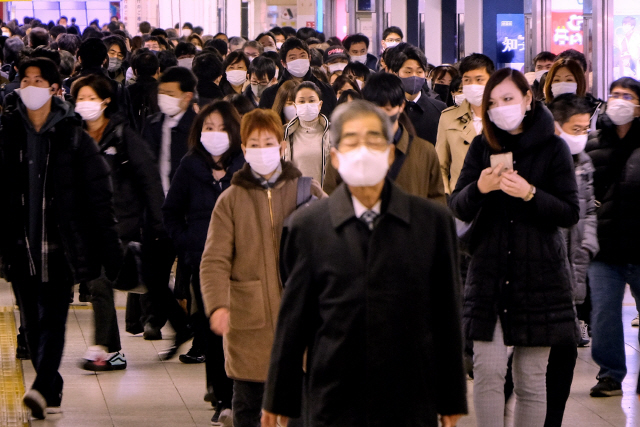Shortage of beds and emergency patient rejection one after another
Emergency re-issued after 9 months
Reduced restaurant sales only in 4 metropolitan areas
Concerns are growing about weaker measures than the first
 viewer
viewer
The spread of the new coronavirus infection (Corona 19) is becoming uncontrollably fast, with more than 6,000 new confirmed cases for the first time in Japan. The Japanese government pulled out the emergency declaration card again, but there is no coercion, and compared to the first emergency declaration, the target area is significantly reduced and the intensity of response is weak, so it is not enough to prevent the situation from deteriorating. If the proliferation trend continues after the declaration of an emergency, the voice of criticism against Prime Minister Yoshihide Suga, who declared an emergency at a later date, is expected to increase.
 viewer
viewer
According to NHK on the 7th, 6,001 new corona19 confirmed cases occurred in Japan the previous day. Accordingly, the cumulative confirmed cases increased to 260,150. The death toll increased by 65 to 3,834. It is the first time since the spread of Corona 19 that the number of new confirmed cases in Japan exceeded 6,000 a day.
As the number of confirmed cases increases, hospital beds are scarce, and medical institutions are refusing emergency patients. Toshio Nakagawa, chairman of the Japanese Medical Association, said at a press conference held the day before, “There is a situation where we cannot provide adequate medical services in urban areas.”
In order to prevent the spread of Corona 19, the Japanese government eventually chose to re-enter the emergency situation. Prime Minister Suga, who had hesitated to declare an emergency for fear of economic shock, pulled out the card. It has been only nine months since April last year that the Japanese government issued an emergency situation based on the Act on Special Measures for Countermeasures such as New Influenza (Special Measures Act).
The emergency is expected to take effect for one month from the 8th to the 7th of the following month for four metropolitan local governments, including Tokyo, Saitama, Kanagawa, and Chiba Prefecture. The Japanese government is planning to focus on shortening the business hours of restaurants, etc., to 8:00 pm, seeing that Corona 19 is spreading mainly through drinking parties. In addition, it is expected to refrain from going out after 8 pm and limit the number of participants to large-scale events to 50% of the facility’s capacity or to 5,000 or less. In addition, it plans to encourage companies to reduce employees who go to work by 70% by expanding telework or telework.
However, there are voices of concern that the spreading trend will not be easily halted despite this measure. This is because there is no punishment regulation under the current law even if the request or guidelines of the government or local governments are violated, and the government’s response method is loose compared to the first emergency, which was better than now.
Although the number of confirmed cases is more than 10 times more than in the first emergency, the number of enforcement areas has decreased significantly compared to the first case, which was targeted by seven regional governments. At the time of the first declaration, restaurants, movie theaters, and department stores were virtually completely closed, and measures were taken to close schools in elementary, middle, and high schools, but this time, business hours were shortened and schools and childcare facilities are not closed or closed in principle.
Kentaro Iwata, a professor of infectious diseases at Kobe University, told NHK, “We had to declare an emergency sooner to minimize the spread of infection and economic damage.” A specific and strong message such as a ban is needed.” If the situation worsens, the period of emergency may be extended, and the possibility of expanding the area in which the emergency is issued cannot be excluded. In this case, it is expected that Prime Minister Suga’s political status, even though he will be retired, will be greatly shaken, as it could have a negative impact on the hosting of the Olympics as well as the economic shock.
/ Reporter Park Seong-gyu [email protected]
< 저작권자 ⓒ 서울경제, 무단 전재 및 재배포 금지 >
